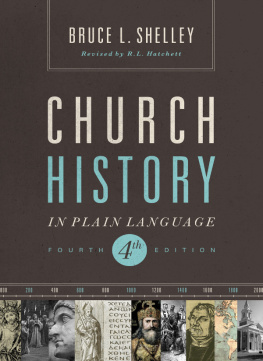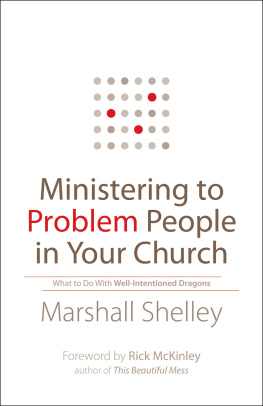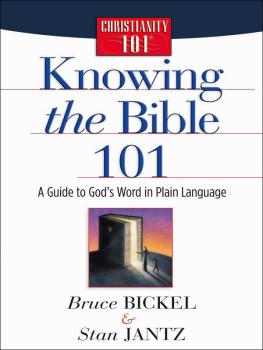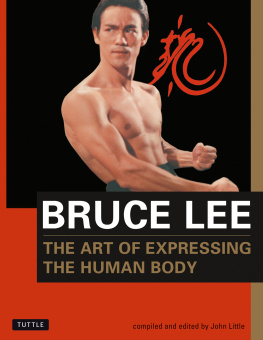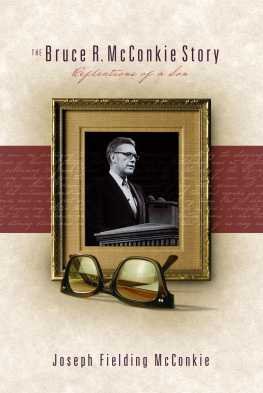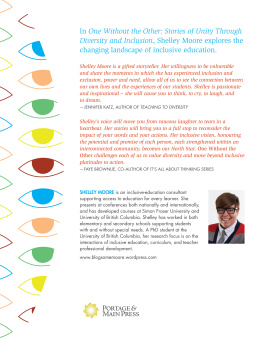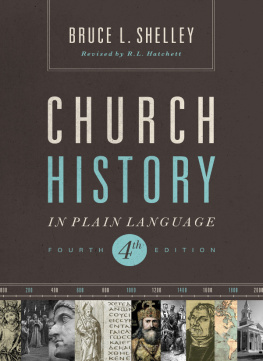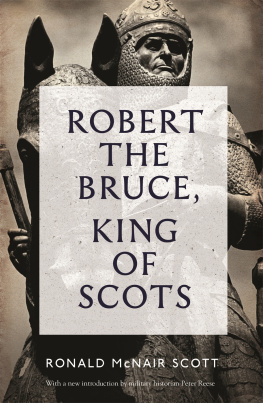Bruce Shelley - Church History in Plain Language
Here you can read online Bruce Shelley - Church History in Plain Language full text of the book (entire story) in english for free. Download pdf and epub, get meaning, cover and reviews about this ebook. year: 2013, publisher: Thomas Nelson, genre: Religion. Description of the work, (preface) as well as reviews are available. Best literature library LitArk.com created for fans of good reading and offers a wide selection of genres:
Romance novel
Science fiction
Adventure
Detective
Science
History
Home and family
Prose
Art
Politics
Computer
Non-fiction
Religion
Business
Children
Humor
Choose a favorite category and find really read worthwhile books. Enjoy immersion in the world of imagination, feel the emotions of the characters or learn something new for yourself, make an fascinating discovery.
- Book:Church History in Plain Language
- Author:
- Publisher:Thomas Nelson
- Genre:
- Year:2013
- Rating:4 / 5
- Favourites:Add to favourites
- Your mark:
- 80
- 1
- 2
- 3
- 4
- 5
Church History in Plain Language: summary, description and annotation
We offer to read an annotation, description, summary or preface (depends on what the author of the book "Church History in Plain Language" wrote himself). If you haven't found the necessary information about the book — write in the comments, we will try to find it.
Church History in Plain Language — read online for free the complete book (whole text) full work
Below is the text of the book, divided by pages. System saving the place of the last page read, allows you to conveniently read the book "Church History in Plain Language" online for free, without having to search again every time where you left off. Put a bookmark, and you can go to the page where you finished reading at any time.
Font size:
Interval:
Bookmark:

2008, 2013 by Bruce L. Shelley
All rights reserved. No portion of this book may be reproduced, stored in a retrieval system, or transmitted in any form or by any meanselectronic, mechanical, photocopy, recording, scanning, or otherexcept for brief quotations in critical reviews or articles, without the prior written permission of the publisher.
Published in Nashville, Tennessee, by Thomas Nelson. Thomas Nelson is a registered trademark of HarperCollins Christian Publishing, Inc.
Typesetting by Rainbow Graphics, Kingsport, Tennessee.
Thomas Nelson titles may be purchased in bulk for educational, business, fund-raising, or sales promotional use. For information, please e-mail SpecialMarkets@ThomasNelson.com.
Unless otherwise specified, all Scripture quotations are from the REVISED STANDARD VERSION of the Bible. 1946, 1952, 1971, 1973 by the Division of Christian Education of the National Council of the Churches of Christ in the USA. Used by permission.
Scripture quotations marked NRSV are from the NEW REVISED STANDARD VERSION of the Bible. 1989 by the Division of Christian Education of the National Council of the Churches of Christ in the U.S.A. All rights reserved.
Scripture quotations marked (NIV) are taken from the Holy Bible, New International Version, NIV. Copyright 1973, 1978, 1984 by Biblica, Inc. Used by permission of Zondervan. All rights reserved worldwide. www.zondervan.com. The NIV and New International Version are trademarks registered in the United States Patent and Trademark Office by Biblica, Inc.
ISBN: 978-1-4016-7631-5
The Library of Congress has catalogued the earlier edition of this book as follows:
Library of Congress cataloging-in-publication-data
Shelley, Bruce L. (Bruce Leon), 1927
Church history in plain language, 3rd edition
Includes bibliographies and index.
ISBN 978-0-7180-2553-3
1. Church historyPopular works. I. Title.
Printed in the United States of America
13 14 15 16 17 18 RRD 6 5 4 3 2 1
To my students in Church History classes who pressed the question of significance.
CONTENTS
T HIS BOOK EXECUTED A noble purpose: to lead evangelical readers to engage their own story and to encounter the larger Christian world. The book is successful because of Bruce Shelley, who brought many gifts to the project. He brought his good character and concern for the church, his historians training and eye, his vivid prose for both conversation and narrative, and his years of effective classroom experience.
The book is widely and warmly received because of his discipline. He kept his focus on a popular audience, maintaining the straightforward, plain language he promised. He was selective in ways I am sure were painful for a person of his historical training. He did not seek some comprehensive goal but elected to tell representative stories that might still give the reader a sense of the larger whole. For the most part, each of the stories can be read independently. He did not distract his reader with citations. Curious readers or students could find the references in the endnotes for each chapter and general indebtedness in the suggested reading sections at the end of each chapter. I have followed his informal style, adding endnotes and marking my own new recommendations for books with asterisks.
It is an honor to be entrusted with updating the work. There are minor alterations throughout, but I wished to honor Shelleys personal imprint upon every page. I have added information concerning Gnosticism and its ongoing relevance, the theology of the early church and Reformation, and most extensively the rapid global extension and transformation of Christianity since 1900 (in 3 new chapters). Recent history is always vexing, but I have attempted to address the surprising circumstance of Christianity in both the West and Global South. Addressing the new shape of Christianity requires explanation as much as merely retelling its many stories.
A word about numbers and nomenclature is necessary, and perhaps most important for the reader. Descriptions like Global South and majority world are inevitably problematic. Without intent to offend or make a point, I use common but unsatisfactory terms because better terms have not been commonly accepted. The West is North America, England, and Western Europe. The Global South refers to the Third World, counting South America, Africa, and Asia, and includes places such as China that are above the equator. Similar frustration exists with the Western point of reference in terms like Far East and Middle East. Perhaps a discerning student will point a better way forward. I hope, however, no reader will miss the point that American evangelicals need a larger frame of reference to participate in the great kingdom work flourishing in the world today. I usually cite modest numbers from established sources but believe these are typically under-reported. I watched my friend, the late Walter Lumpkin, attempt to account for non-denominational church life in Houston, Texas. The experience impressed me that mainline churches count well, but the most vital people to count are the ones we miss altogether.
Several students deserve mention for help in typing or research: Jimmy Parks, Ashley Ashcraft, Karl Russell, and Joel Burdeaux. Jim Denison, Daniel Vestal, Pete Sanchez, and Randy Richards, friends with significant experience in the wider world, have offered fruitful conversation about the project. Thanks to David Capes and Heather McMurray of Thomas Nelson who recruited me to the project, and to Maleah Bell who patiently saw it to completion. Thanks most of all to my wife Debbie. She assisted with some typing, good judgment, and a keen eye. She contributes to anything I do well.
R. L. Hatchett
Professor of Theology and Philosophy
Houston Baptist University
F OR YEARS I KEPT a cartoon on my study door. Students who stopped to read it often stepped into my office smiling. It encouraged easy conversation. It was a Peanuts strip. Charlie Browns little sister Sally is writing a theme for school titled, Church History. Charlie, who is at her side, notices her introduction, When writing about church history, we have to go back to the very beginning. Our pastor was born in 1930. Charlie can only roll his eyes toward the ceiling.
Many Christians today suffer from historical amnesia. The time between the apostles and their own day is one giant blank. That is hardly what God had in mind. The Old Testament is sprinkled with reminders of Gods interest in time. When he established the Passover for the children of Israel, he said, Tell your son... it will be like a sign... that the Lord brought us out of Egypt (Ex. 13:8, 16, NIV). And when he provided the manna in the wilderness, he commanded Moses to keep a jar of it for the generations to come (Ex. 16:33, NIV).
As a consequence of our ignorance concerning Christian history, we find believers vulnerable to the appeals of cultists. Some distortion of Christianity is often taken for the real thing. At the same time other Christians reveal a shocking capacity for spiritual pride, hubris. Without an adequate base for comparisons they spring to the defense of their way as the best way, their party as the superior party. Finally, many Christians engage in some form of ministry without the advantage of a broader context for their labor. When they want to make the best use of their time or their efforts, they have no basis for sound judgment.
I am not suggesting that one book surveying our Christian past will refute all error, make the reader a humble saint, or plot a strategy for effective ministry. But any introduction to Christian history tends to separate the transient from the permanent, fads from basics. That is my hope for this book among my readers.
Next pageFont size:
Interval:
Bookmark:
Similar books «Church History in Plain Language»
Look at similar books to Church History in Plain Language. We have selected literature similar in name and meaning in the hope of providing readers with more options to find new, interesting, not yet read works.
Discussion, reviews of the book Church History in Plain Language and just readers' own opinions. Leave your comments, write what you think about the work, its meaning or the main characters. Specify what exactly you liked and what you didn't like, and why you think so.

